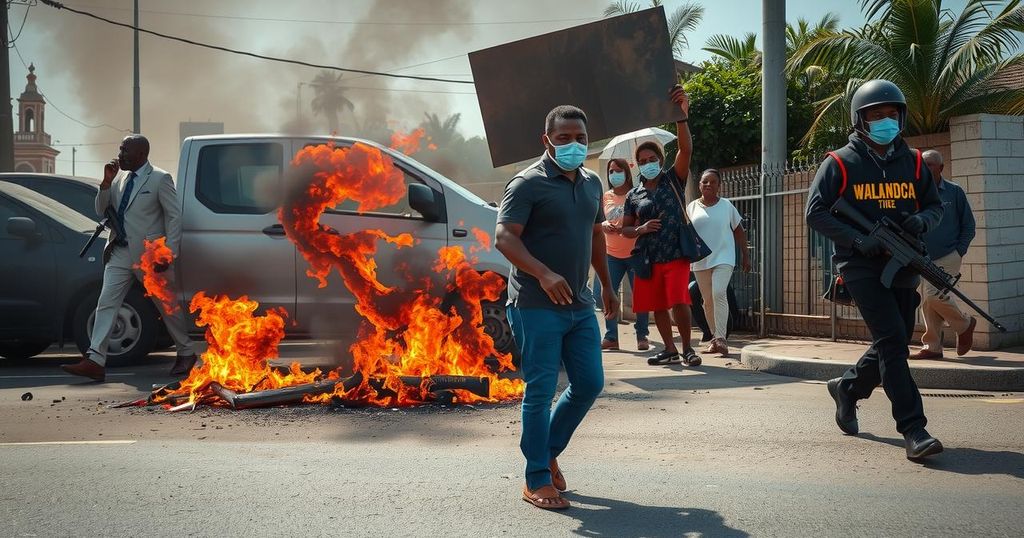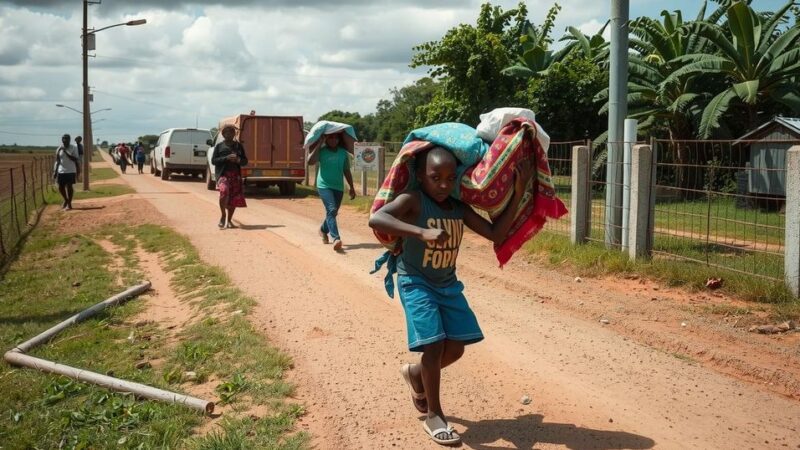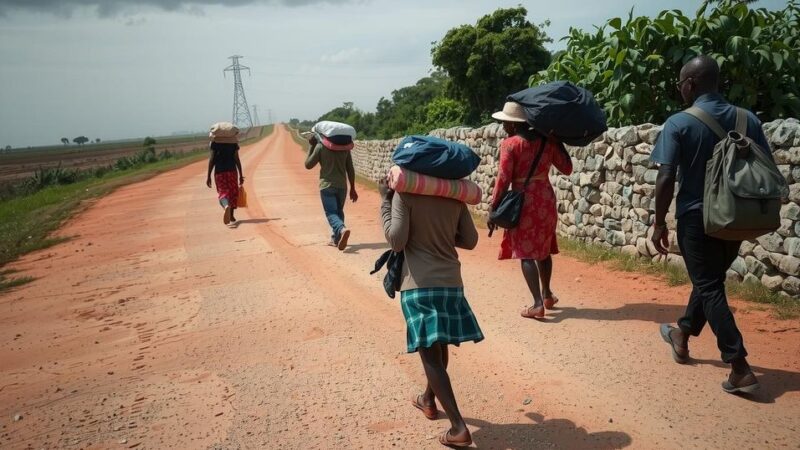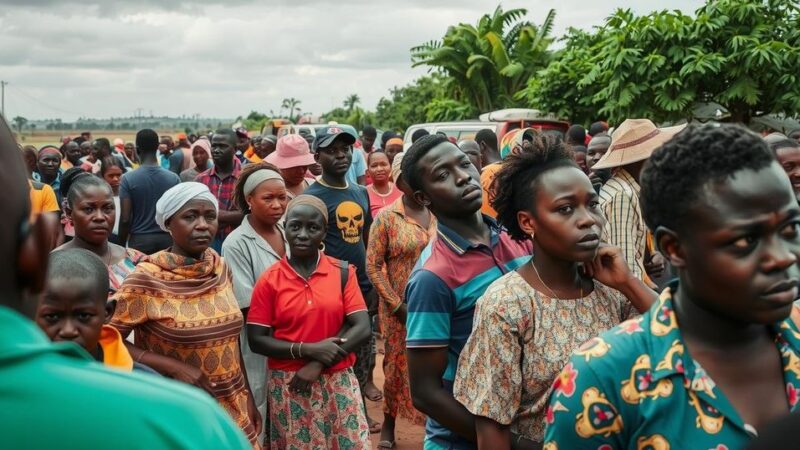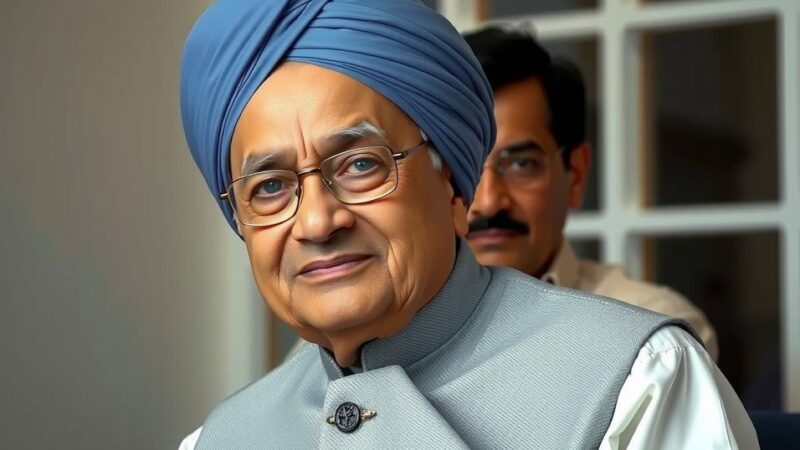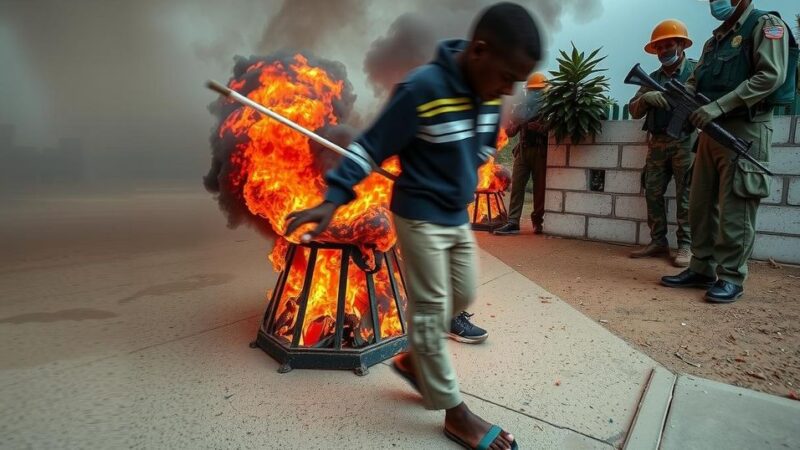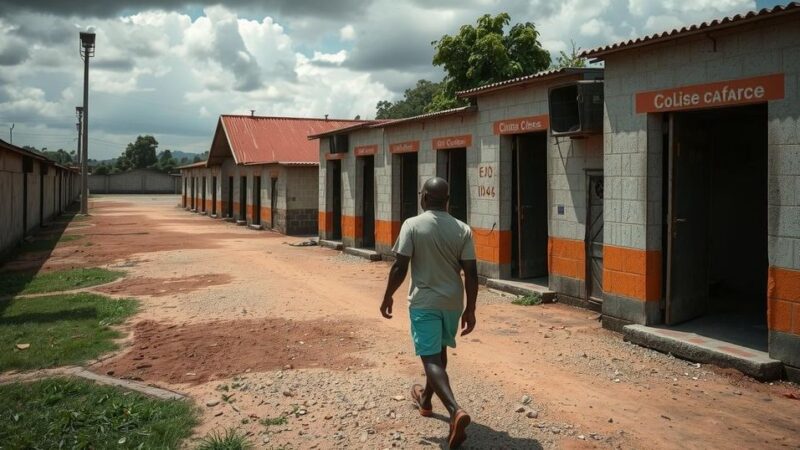Mozambique has witnessed at least 21 deaths due to political unrest following disputed election results. Opposition leader Vanancio Mondlane maintains that the elections were fraudulent and plans to declare himself president on January 15. Violent clashes between police and protesters have escalated, raising serious concerns over human rights abuses and electoral integrity as international observers call for accountability and peace.
As political unrest continues to escalate in Mozambique, at least 21 individuals have lost their lives since Monday amid violent clashes between police and protesters. The unrest was precipitated by the recent affirmation of the controversial election results by the Mozambique Constitutional Council, which declared the ruling Frelimo Party candidate, Daniel Chapo, the victor. Opposition leader Vanancio Mondlane, who claims the elections were fraudulent, has vowed to assume the presidency, further inflaming tensions.
The political crisis ignited following the council’s proclamation that Chapo received 65.2% of the vote compared to Mondlane’s 24%. Mondlane and his followers, however, contend that the election was rigged, with earlier allegations suggesting Chapo’s actual support was 71%. Protests erupted in response to these developments, resulting in over 100 fatalities since the initial announcement of the election results on October 9.
As tensions mount, Mondlane has sought asylum in an undisclosed location but has declared his intention to inaugurate himself as president on January 15, despite losing in what he perceives as a tainted election. On a recent Facebook live broadcast, he encouraged his supporters to avoid violence, stating, “We do not advocate any form of violence” while asserting their commitment to the people’s cause.
The current presidency of Filipe Nyusi is nearing its conclusion after two terms, leaving a political landscape ripe for contention. Human rights organizations have indicated that security forces may be implicated in many of the recent deaths. Police chief Bernadino Rafael has contested these claims, asserting that law enforcement has acted defensively amid protests.
U.S. officials recognize the legitimacy of Mondlane’s concerns, citing significant irregularities noted by civil society and international observers during the electoral process. The U.S. Department of State has called for all parties involved to advocate for peace, emphasizing the need for accountability regarding human rights violations. Matthew Miller, spokesperson for the State Department, stated that Mozambicans “deserve elections that are free of violence and that reflect the will of the people.”
Mozambique, strategically located between South Africa and Tanzania, faces the challenge of restoring order and addressing the electoral grievances that have led to widespread violence and civil unrest.
Mozambique has been embroiled in political strife since the contentious elections held on October 9, where allegations of electoral fraud have polarized the nation. The Frelimo Party, which has held power for nearly half a century, was declared the prevailing party following the election results, leading to intensified protests from the opposition. The situation has prompted significant international attention, particularly from human rights and electoral monitoring organizations that are concerned about the fairness of the electoral process and the ensuing violence.
In summary, Mozambique is experiencing a critical political crisis characterized by violent protests and significant loss of life following disputed election results. Opposition leader Vanancio Mondlane’s call for presidential self-inauguration on January 15 only adds to the tensions. Calls for accountability and peace continue as international observers express concern over the legitimacy of the election process and the actions of security forces. The nation’s future stability will depend on addressing these grievances and fostering democratic norms.
Original Source: www.upi.com

